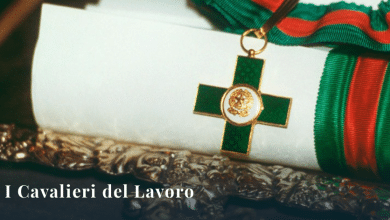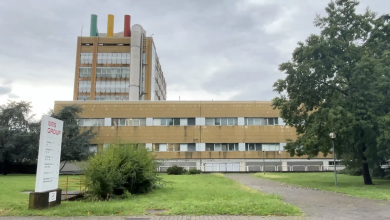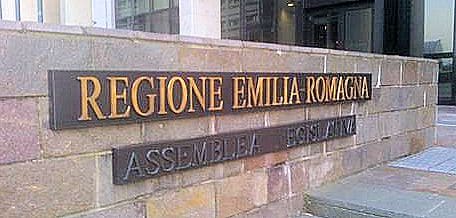
In the foreground, transparency and attention to conflicts of interest: the document presented to the Assembly Commission defines the duties, principles and ethical standards for personnel. The goal is to make the existing Codes homogeneous, which must be updated by the end of May.
Bologna, 29 January 2018 – Obligation to abstain from participating in decisions or activities in situations of conflict of interest, even potential. No request, nor acceptance, for oneself or for others, of gifts or other benefits. Prohibition to assume positions in associations and organizations (including voluntary or non-profit ones) that could cause a conflict of interest with the activity carried out within the Company.
 These are some of the provisions contained in the "model scheme" of the Single Code of Conduct for personnel working in the Emilia-Romagna Health Trusts, presented this morning to the Assembly Commission by the Councilor for Health Policies, Sergio Venturi, and which will be adopted with specific resolution by the Board in today's session. A document that the Region wanted to strengthen the value of the health service system and to provide a uniform and homogeneous reference framework for institutions and companies in the preparation of individual corporate codes of conduct, which must be updated by the end of the May.
These are some of the provisions contained in the "model scheme" of the Single Code of Conduct for personnel working in the Emilia-Romagna Health Trusts, presented this morning to the Assembly Commission by the Councilor for Health Policies, Sergio Venturi, and which will be adopted with specific resolution by the Board in today's session. A document that the Region wanted to strengthen the value of the health service system and to provide a uniform and homogeneous reference framework for institutions and companies in the preparation of individual corporate codes of conduct, which must be updated by the end of the May.
Choice and contents of the Code fall within the policies for the prevention of corruption and for the promotion of transparency in healthcare defined with a specific provision, contained in regional law 9 of 2017. The general principles on which the text is based are the centrality of the person, the principle of non-discrimination, legality and transparency, confidentiality, valorisation of professional assets, risk management and safety protection.
The standard scheme was prepared with the company contacts who are part of the regional table (set up in December 2017) for the coordination of measures regarding transparency and prevention of corruption of the companies and bodies of the Health Service; it was shared with the Directorate-General for Personal Care, Health and Welfare and with the Companies.
It has been drawn up taking into account the recent guidelines adopted by the National Anti-Corruption Authority, the Codes of Conduct already in place in the individual Health Trusts (as required by Presidential Decree 62 of 2013), and the Code of Conduct for public employees.
What is the Code
The Code defines the constitutional duties, principles and ethical standards of behavior for the personnel who work in the Regional Health Trusts in private relations, in service and in relations with the public and the media.
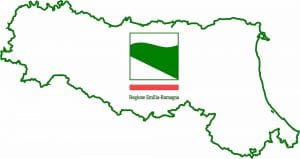 It applies to all personnel who in any capacity work for the Company; specifically, to fixed-term and permanent employees, on secondment, secondment or out of tenure, collaborators and consultants of the Company with any type of contract, doctors and other university personnel integrated with assistance, general practitioners, pediatricians on free choice and in-house outpatient specialists (as far as compatible with the relevant national agreement), doctors in specialist training, researchers, PhD students, research fellows and trainees; general, administrative and health directors; staff of supplier companies, volunteers who are part of the associations. For managers and directors, the document establishes further indications.
It applies to all personnel who in any capacity work for the Company; specifically, to fixed-term and permanent employees, on secondment, secondment or out of tenure, collaborators and consultants of the Company with any type of contract, doctors and other university personnel integrated with assistance, general practitioners, pediatricians on free choice and in-house outpatient specialists (as far as compatible with the relevant national agreement), doctors in specialist training, researchers, PhD students, research fellows and trainees; general, administrative and health directors; staff of supplier companies, volunteers who are part of the associations. For managers and directors, the document establishes further indications.
What does it predict
Based on the Code, personnel inform the Company on which they depend, through a specific declaration, of all relationships that have occurred, for any reason, in the last three years with external subjects from which a conflict of interest may arise, including potential. This statement specifies any fees received and benefits enjoyed, whether directly or indirectly. The forms have been prepared in a uniform way for all the companies as part of the work carried out by the regional transparency and anti-corruption table.
In reiterating that the recipients do not ask for or solicit, for themselves or for others, gifts or other benefits (services, opportunities), the Code specifies "not even of modest value", i.e. of an occasional nature and of a value not exceeding 150 euros for each gift.
Recipients of the Code cannot take on positions in associations and organizations that could place them in conflict of interest with the activity carried out within the company, including voluntary associations and non-profit organizations. Both in service and in private relationships, they pursue the interests of the Company, they must not harm its image, they must not make public offensive statements against it. In relations with the media, they must pay particular attention to the protection of the privacy and dignity of individuals, to the right to the protection of personal data and those relating to health.
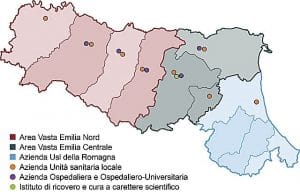 The Code contains specific articles for the Regional Health Service, which concern particularly delicate areas: waiting lists ("managed with the utmost rigor and according to criteria of transparency, avoiding any form of conditioning deriving from professional activity or other non- institutions") and the freelance activity ("authorized by the Company and carried out in compliance with the laws and regulations on the subject, in such a way as to guarantee the priority performance and compliance with the volumes of the institutional activity, as well as the functionality of the services ").
The Code contains specific articles for the Regional Health Service, which concern particularly delicate areas: waiting lists ("managed with the utmost rigor and according to criteria of transparency, avoiding any form of conditioning deriving from professional activity or other non- institutions") and the freelance activity ("authorized by the Company and carried out in compliance with the laws and regulations on the subject, in such a way as to guarantee the priority performance and compliance with the volumes of the institutional activity, as well as the functionality of the services ").
And again: research and experimentation, activities following the death of a patient, sponsorships and training ("sponsored training is permitted if it reasonably brings a benefit to the institutional activity carried out and on the basis of non-nominative proposals addressed to the Company, in compliance with current regulations").
Finally, relationships with pharmaceutical companies/or medical device manufacturers; on this point “it is forbidden to receive prizes, pecuniary advantages or in kind, unless they are of negligible value and are in any case connected to the activity carried out by the doctor or pharmacist. The quantification of the aforementioned negligible value is set at a maximum of twenty euros per year per pharmaceutical company, for each individual doctor or pharmacist".
Who monitors the application
The managers, the Disciplinary Procedures Office, the Head of Corruption Prevention and Transparency (RPCT), the personnel service, the OIV (Independent Evaluation Body) of the Regional Health Service with the collaboration of the corporate support body.
Related news: DGR 2309/2016 the new rules on scientific representatives


